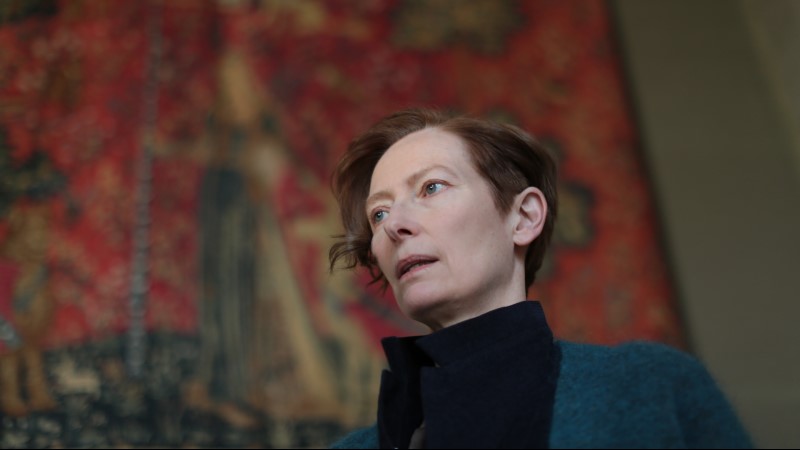LUMI Reviews The Eternal Daughter
30 November 2023
Maternal Echoes & Familial Ghosts: A review of Johanna Hogg’s The Eternal Daughter by LUMI Programmer Molly Qualter.

Johanna Hogg’s The Eternal Daughter (2023) delves into the realm of gothic horror, positioning itself within the ghost story genre while harnessing the poignant resonance of Tilda Swinton portraying both mother and daughter. This cinematic exploration weaves an existential narrative that navigates the intricate dynamics of family tensions, fears, and love. The film's thematic foundation prompts reflections on the complexities of motherhood, presenting us, the audience with psychoanalytical nuances, intellectual discourse on familial relationships, and the innovative departure from conventional Freudian frameworks.
Released in the UK & Ireland during the chilly end of November, the film's timing feels impeccable. As temperatures drop and mornings get foggier, the atmosphere aligns with the film’s eerie vibes. Hogg's signature scenes, where nothing much happens but everything is felt, make for an intellectually charged, self-reflective viewing. She withholds character details and sprinkles major plot points teasingly into seemingly casual conversations. It's a testament to Hogg’s ability to turn mundane exchanges into otherworldly spectacles, which we see in the encapsulating, passive aggressive interaction between Julie and a receptionist where the hyper significance of the films location of this uncanny hotel is almost dismissed.
In her infamous work, The Second Sex, Simone de Beauvoir intricately dissects the psychoanalytic dimensions of the mother-daughter relationship, stating, “she cannot bear to have her daughter become really her double, a substitute for herself”. This concept haunts the framework of The Eternal Daughter (2023), encapsulating the universal dread of morphing into your mother, while simultaneously yearning to be her caregiver. Hogg conjures a narrative on motherhood that defies the Freudian stereotypes cinema often forces upon us and instead presents us with a personal and fiercely feminist narrative.
Upon reflecting on this film, I was left with the question: Would the experience be equally mind-bending for those unfamiliar with Hogg's filmography? The answer remains elusive, yet the film unravels an almost surreal Hogg-Swinton universe. This intricate web stems from Tilda Swinton’s first appearance in Johanna Hogg's graduate film, Caprice (1986), to her roles in The Souvenir (2019) and its sequel, where she shares the screen with her real-life daughter, Honor Swinton-Byrne. The complexity deepens as the name "Julie" echoes through both The Souvenir (2019), The Souvenir Part II (2021) and The Eternal Daughter (2023), blurring the lines between characters and realities. In this tangled creative partnership spanning almost forty years, Tilda Swinton finds herself portraying a character she's played twice before – both the mother and the character her own daughter embodied. Thus resulting in a narrative maze which feels like a journey of cinematic and personal memory and overall ensuing a deeply personal and thought-provoking viewing.




